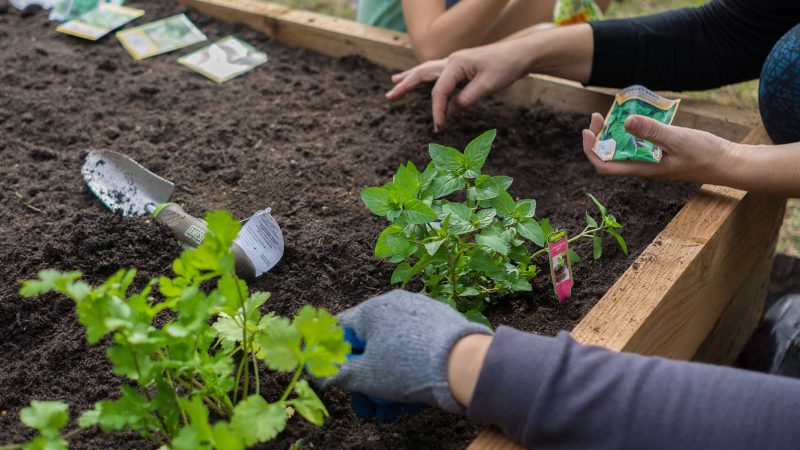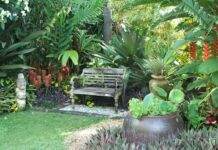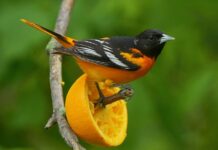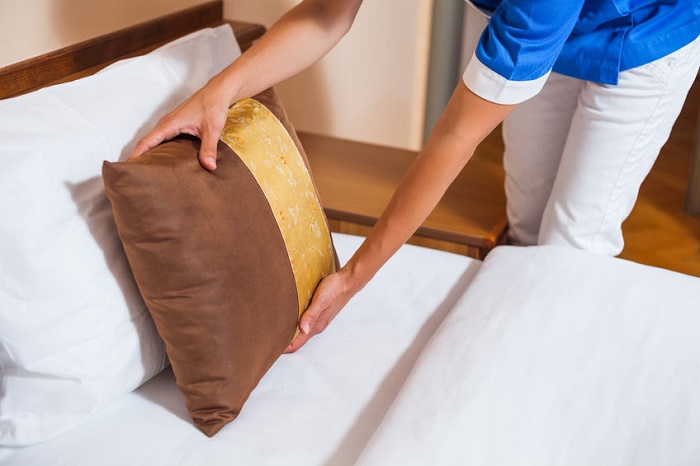The ingredients that we add to our land are essential to be able to grow plants and maintain a garden in beautiful conditions, all year round. There are many tricks that successful gardeners use to ensure their gardens flourish, and they all have to do with one simple concept: the fertilizer they use for their plants.
Important ingredients for our plants to grow
In order to have a successful garden we have to take into account what we give to our land, before, during and after the plant continues to grow.
1. Wood ash
Adding wood ash to the soil provides many benefits. First, its high alkaline content makes it perfect for neutralizing acidic soils. You can purchase a pH test kit at any garden center to find out if your garden could benefit from some wood ash for this purpose.
The wood ash is also an excellent source of lime and potassium, two nutrients that are highly beneficial to plants as well as many trace elements that plants need to survive.
It is important to note that wood ash will produce lye and salts when wet, so it is best to use it lightly dispersed in small amounts, as a small amount of these elements probably will not harm the plants. Another option is to compost the ashes first to allow the bleach and salt to leach out.
2. Banana peels
Banana peels contain potassium, phosphorus, calcium and magnesium, all of these ingredients are highly beneficial for our plants, just as they are for us.
Potassium benefits plants in growing stronger stems, phosphorous helps produce healthy roots and shoots, and is essential for producing flowers, pollen, and fruits, calcium is important for proper root and stem development, and magnesium supports healthy photosynthesis.
Cut the peels and add them directly around the soil when planting tomatoes, rose bushes, and green peppers to enrich the soil and strengthen your plants.
3. Compost tea to strengthen your plants
Compost tea is made by steeping compost in water. Then add sulfur-free molasses as a food source for beneficial microorganisms and aerate the solution for a few days. This creates a “tea” that contains thousands of healthy microorganisms.
When sprayed in the garden, the beneficial microorganisms in the tea will crowd out the disease-causing ones, thus improving the health of your plants.
4. Aquarium water
If you have a fish tank, you may want to reconsider flushing the old water down the drain when cleaning it. That water contains waste and bacteria that are harmful to fish, but beneficial to plants.
The important limitations are that this water should only be fresh (not salt water), and should only be applied to ornamental plants, not edible.
5. Coffee beans
Instead of throwing out old coffee beans after making your morning cup, save them for the garden. Ground coffee contains significant amounts of calcium, potassium, nitrogen, and phosphorous to boost plant growth.
Ground coffee can possibly acidify the soil. Although it should be noted, the level of acidity can range from very acidic to even slightly alkaline. That said, don’t expect a lot of acidity in high pH soils.
6. Eggshells
The high calcium content in eggshells makes them an excellent plant food. Just wash them, grind them, and add them to plants that often suffer from calcium deficiency, such as tomatoes.
You can even start the seedlings in shells that have been cut in half and rinse, which can then be planted directly into the ground when the seedlings are mature enough, as the shell will decompose under the ground.
7. Herbs and teas for your plants
Do not throw away the tea bags or envelopes. Adding them to the soil can help with soil drainage and healthy aeration of plant roots, and help the soil retain moisture and nutrients.
Its high nitrogen content is also great for plants, along with a number of other nutrients that are gradually released into the soil. You can simply sprinkle them at the base of your plants, or incorporate them into your compost.
8. Grass clippings
A thin layer of grass clippings on top of the soil can prevent weeds from growing and help plants retain moisture. However, how much you add is important here, as too much grass could make it difficult for the water to flow through. No more than a quarter inch of grass mulch will be enough to benefit the soil without overdoing it.
9. Foods of plant origin
You can make your own plant food at home by combining Epsom salts, baking soda, and household ammonia. This will help the plants stay healthy at a fraction of the cost of store-bought plant foods.









